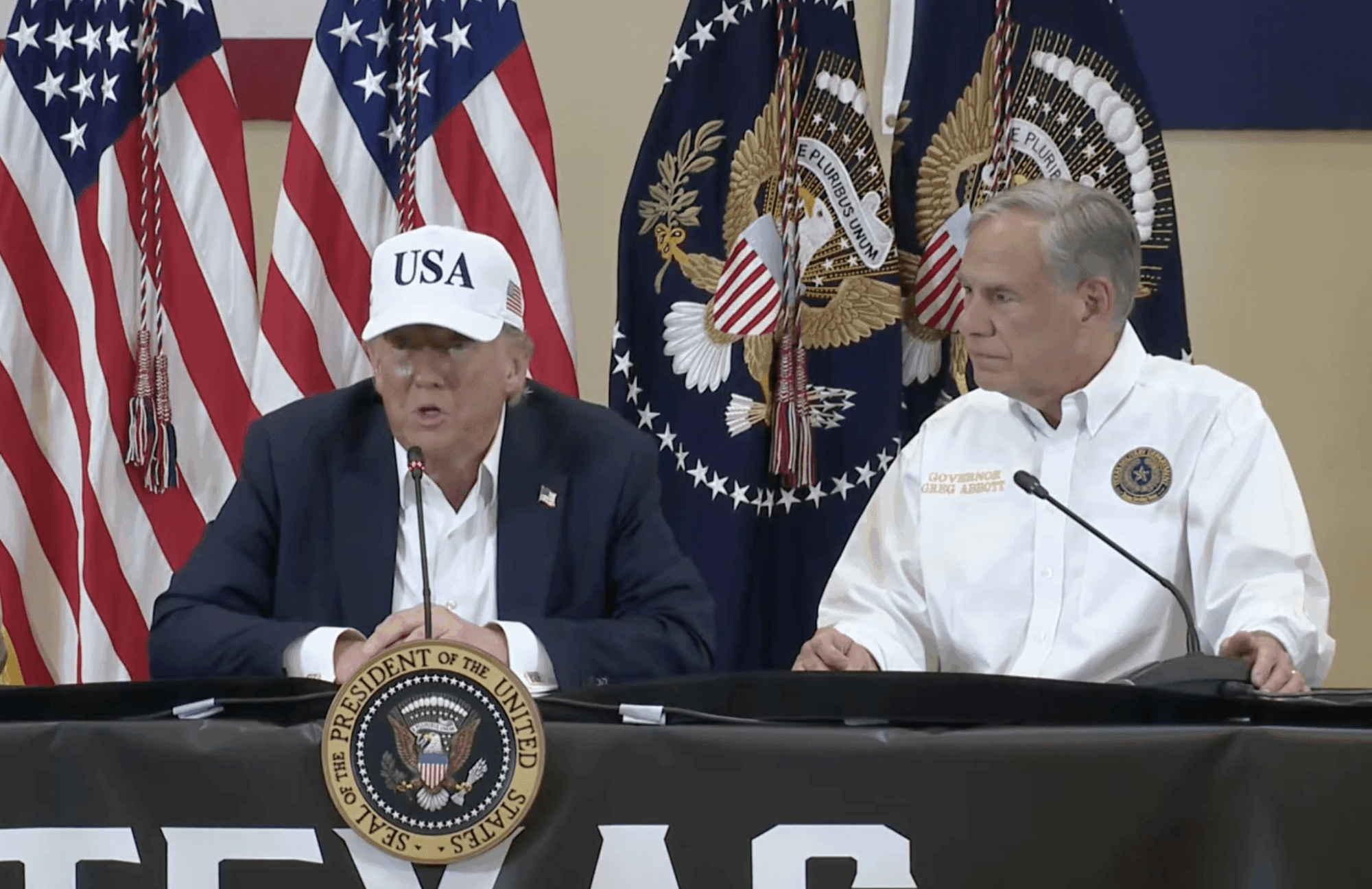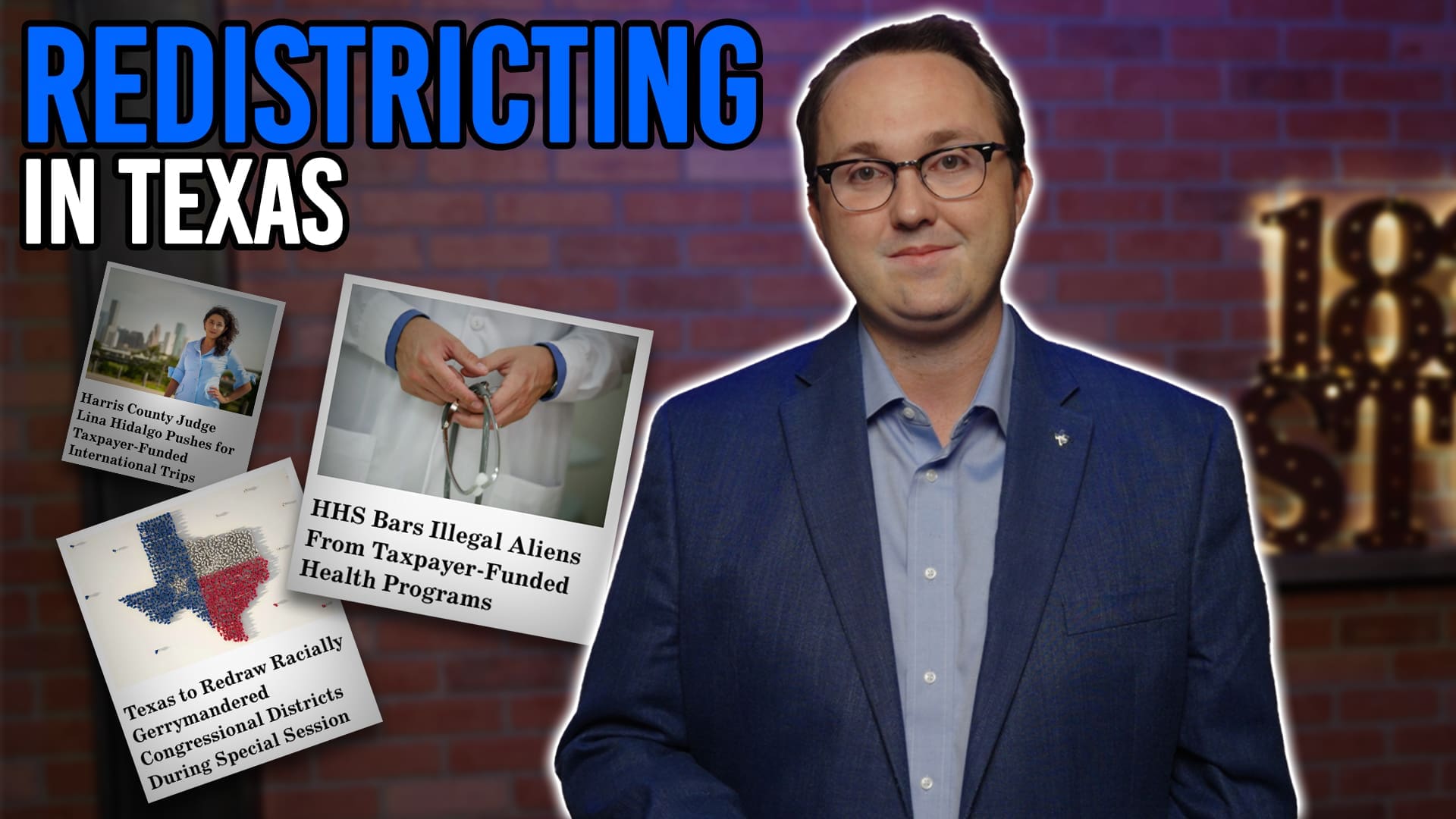Montgomery County, notorious for its corruption and “good old boys” network, has been run by a tight-knit group of establishment politicians for decades. However, significant changes could be ahead if reform-minded candidates have their way in the March 6 primary.
Most critical is the county judge race, which best epitomizes the conflict between establishment and reform. Incumbent Craig Doyal is facing a bitter re-election fight after a first term characterized by ethical problems, two grand jury investigations, an indictment, and massive increases in government spending. He’s being challenged by State Rep. Mark Keough (R-The Woodlands).
County judges, who are the chief executives of the county, and preside over commissioners court, are the most powerful county officials in Texas. In Montgomery County, the county judge wields even more power, due to Doyal getting the commissioners to cede all departmental authority s to him when he first came into office.
Doyal has ruled the court like a dictator, handing out county contracts to his business partner and donors, and giving county jobs to family members of court colleagues. He is enabled by the majority of commissioners, two of which vote with Doyal. Two, however, vote against him and are more friendly to the grassroots, causing a 3-2 split on the court regarding most important issues.
The balance of power could shift if Doyal is defeated by Keough. One of the commissioners that votes with the establishment block, Charlie Riley of Precinct 2, is also up for re-election and is locked in a three way race against businessman Brian Dawson and former Comal County commissioner Greg Parker. Riley has also been implicated in Doyal’s investigations and indictment.
The two main issues which have separated the incumbents from the challengers are property taxes and toll roads.
Doyal has presided over a 133 percent tax increase over the last ten years. This is due largely to rising appraisal growth, for which Riley, who sits on the appraisal board in addition to being a commissioner, is partly responsible. It is also due to the fact that Doyal and Riley have grown government and increased spending massively, handing taxpayers the bill.
Keough believes that the solution to the county’s out-of-control property taxes is for the commissioners court to lower the tax rate enough each year to compensate for appraisal increases. Keough also says that spending must be cut and has pledged to implement zero-based budgeting, something Doyal has refused to do.
Toll roads are the other hot button topic dividing the candidates. Doyal has remained a staunch defender of tolls, and is responsible for Montgomery County’s first, and currently only, tolls: the SH 242 flyover. While Keough has argued that the tolls on 242 should be removed now that the road has been paid for, Doyal wants to keep them on in order to finance the construction of another toll road.
Doyal and Riley both are pushing for SH 249 to be extended and tolled. The Texas Department of Transportation has confirmed that they will construct the road with state funds if the county decides not to build it. However, Doyal and Riley have insisted on making the county pay for it, which many activists believe is so the commissioners can give the contracts to their donors. Doyal has already awarded millions in contracts for the project to the engineering firm of a man who was his business partner at the time.
Both Riley’s challengers, Dawson and Parker, support the construction of 249, but are staunchly opposed to 249 being a toll road.
While Doyal and Riley have the support and funding of the establishment, who are sticking by them in spite of their legal troubles, Keough and Parker have the backing of the county’s two influential tea party groups. Dawson has the support of Precinct 3 Commissioner James Noack, who has been the leader for reform on the court.
On March 6, voters will have a choice between the status quo of nepotism, conflicts of interest, and rising property taxes, or electing conservative reformers who will put a halt on corruption and listen to the taxpayers. Either way, the outcome of the 2018 primary will have an impact on the direction of Montgomery County for many years to come.
Most critical is the county judge race, which best epitomizes the conflict between establishment and reform. Incumbent Craig Doyal is facing a bitter re-election fight after a first term characterized by ethical problems, two grand jury investigations, an indictment, and massive increases in government spending. He’s being challenged by State Rep. Mark Keough (R-The Woodlands).
County judges, who are the chief executives of the county, and preside over commissioners court, are the most powerful county officials in Texas. In Montgomery County, the county judge wields even more power, due to Doyal getting the commissioners to cede all departmental authority s to him when he first came into office.
Doyal has ruled the court like a dictator, handing out county contracts to his business partner and donors, and giving county jobs to family members of court colleagues. He is enabled by the majority of commissioners, two of which vote with Doyal. Two, however, vote against him and are more friendly to the grassroots, causing a 3-2 split on the court regarding most important issues.
The balance of power could shift if Doyal is defeated by Keough. One of the commissioners that votes with the establishment block, Charlie Riley of Precinct 2, is also up for re-election and is locked in a three way race against businessman Brian Dawson and former Comal County commissioner Greg Parker. Riley has also been implicated in Doyal’s investigations and indictment.
The two main issues which have separated the incumbents from the challengers are property taxes and toll roads.
Doyal has presided over a 133 percent tax increase over the last ten years. This is due largely to rising appraisal growth, for which Riley, who sits on the appraisal board in addition to being a commissioner, is partly responsible. It is also due to the fact that Doyal and Riley have grown government and increased spending massively, handing taxpayers the bill.
Keough believes that the solution to the county’s out-of-control property taxes is for the commissioners court to lower the tax rate enough each year to compensate for appraisal increases. Keough also says that spending must be cut and has pledged to implement zero-based budgeting, something Doyal has refused to do.
Toll roads are the other hot button topic dividing the candidates. Doyal has remained a staunch defender of tolls, and is responsible for Montgomery County’s first, and currently only, tolls: the SH 242 flyover. While Keough has argued that the tolls on 242 should be removed now that the road has been paid for, Doyal wants to keep them on in order to finance the construction of another toll road.
Doyal and Riley both are pushing for SH 249 to be extended and tolled. The Texas Department of Transportation has confirmed that they will construct the road with state funds if the county decides not to build it. However, Doyal and Riley have insisted on making the county pay for it, which many activists believe is so the commissioners can give the contracts to their donors. Doyal has already awarded millions in contracts for the project to the engineering firm of a man who was his business partner at the time.
Both Riley’s challengers, Dawson and Parker, support the construction of 249, but are staunchly opposed to 249 being a toll road.
While Doyal and Riley have the support and funding of the establishment, who are sticking by them in spite of their legal troubles, Keough and Parker have the backing of the county’s two influential tea party groups. Dawson has the support of Precinct 3 Commissioner James Noack, who has been the leader for reform on the court.
On March 6, voters will have a choice between the status quo of nepotism, conflicts of interest, and rising property taxes, or electing conservative reformers who will put a halt on corruption and listen to the taxpayers. Either way, the outcome of the 2018 primary will have an impact on the direction of Montgomery County for many years to come.




